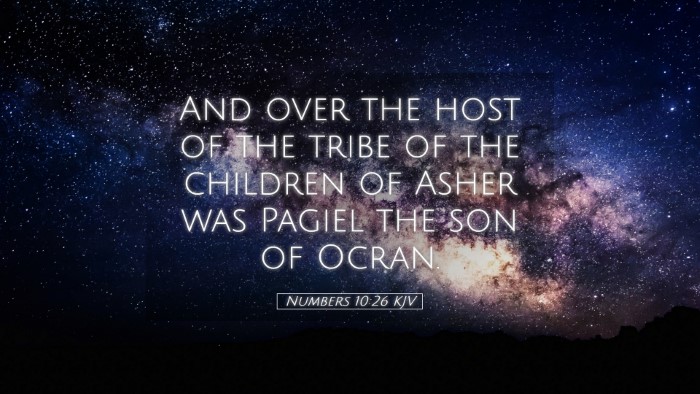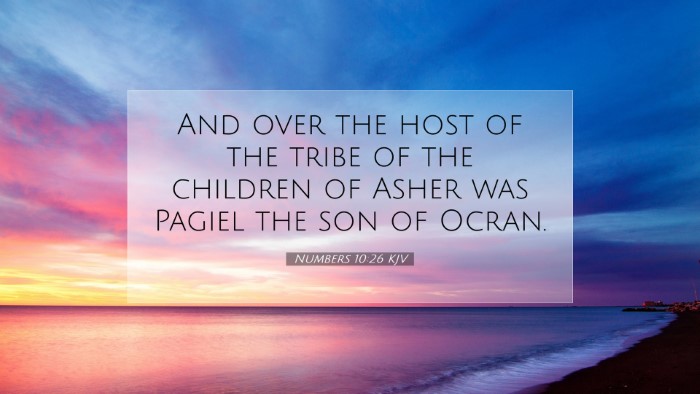Commentary on Numbers 10:26
Bible Verse: "And the rest of the children of Merari were numbered, throughout their families, by the house of their fathers." (Numbers 10:26)
Overview
Numbers 10:26 is nestled within the narrative of Israel's wilderness journey and the organization of the Levitical priesthood. This verse observes the enumeration of the Merarites, one of the Levitical families tasked with significant responsibilities pertaining to the sanctuary components during the Israelites' sojourn.
Context and Historical Background
The Book of Numbers details Israel's census and the organization of the tribes as they prepare to enter the Promised Land. Understanding the genealogical significance of the Levites, specifically the children of Merari, is crucial to grasping the ecclesiastical structure in ancient Israel. Their lineage came from Levi, entrusted with the sacred duty of serving in the Tabernacle, an essential aspect of Israel's worship and community fabric.
Theological Significance
The numbering of the Merarites illustrates God's order and design in His people. As observed in Matthew Henry's Commentary, this enumeration signifies God's attention to detail in ministry roles. Each lineage had its assigned duties within God's tabernacle framework, emphasizing that all believers have a role within the body of Christ today.
Albert Barnes emphasizes the necessity of these divisions to maintain an operational tabernacle, where the sacred duties were divided among the families of Levi. The specifics of 'the house of their fathers' denote the lineage of responsibility, which played a vital part in Israel's religious life and continuity.
Application for Pastors and Theologians
Pastors can derive inspiration from the systematic approach to ministry seen in this account. The structure of leadership within the Levitical order serves as a paradigm for church governance, where diverse gifts within the congregation work together cooperatively. Adam Clarke's examination of these roles might inspire church leaders to reflect on how they can better organize ministries for effective service and worship.
Moreover, the meticulous attention towards family lineage and responsibilities speaks volumes about the importance of spiritual heritage. This aspect can stir pastors to focus on family-based ministry, ensuring generational transfer of faith and responsibility.
Spiritual Lessons
-
Divine Order: As God organized His people, He continues to establish order in the Church. We must appreciate and adhere to the roles assigned within the Body of Christ.
-
Integrity in Service: Each individual has a part to play. The Merarites’ service represents a call to serve faithfully, regardless of the visibility or prestige of a role.
-
Community of Believers: This enumeration teaches that the church functions best when all families and individuals contribute, reinforcing the need for community and collaboration in ministry.
Conclusion
Numbers 10:26, while appearing to be merely a genealogical record, is rich in meaning for today’s church. It reminds us of God’s meticulous care in assigning tasks and roles, encouraging an order that fosters spiritual growth and service. For pastors, students, and theologians alike, this verse underscores the importance of understanding our roles in the grand narrative of faith and the significance of community in fulfilling God’s mission.


